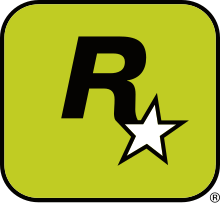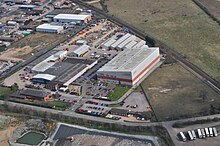
Take-Two Interactive Software, Inc. is an American video game holding company based in New York City founded by Ryan Brant in September 1993.
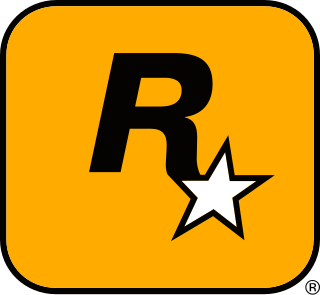
Rockstar Games, Inc. is an American video game publisher based in New York City. The company was established in December 1998 as a subsidiary of Take-Two Interactive, using the assets Take-Two had previously acquired from BMG Interactive. Founding members of the company were Terry Donovan, Gary Foreman, Dan and Sam Houser, and Jamie King, who worked for Take-Two at the time, and of which the Houser brothers were previously executives at BMG Interactive. Sam Houser heads the studio as president.

Grand Theft Auto III is a 2001 action-adventure game developed by DMA Design and published by Rockstar Games. It is the third main entry in the Grand Theft Auto series, following 1999's Grand Theft Auto 2, and the fifth instalment overall. Set within the fictional Liberty City, the story follows Claude, a silent protagonist who, after being betrayed and left for dead by his girlfriend during a robbery, embarks on a quest for revenge that leads him to become entangled in a world of crime, drugs, gang warfare, and corruption. The game is played from a third-person perspective and its world is navigated on foot or by vehicle. Its open world design lets players freely roam Liberty City, consisting of three main areas.

Rockstar Games UK Limited is a British video game development company and a studio of Rockstar Games based in Edinburgh. The company was founded as DMA Design in Dundee in 1987 by David Jones, soon hiring former classmates Mike Dailly, Russell Kay, and Steve Hammond. During its early years, DMA Design was backed by its publisher Psygnosis, primarily focusing on Amiga, Atari ST and Commodore 64 games. During this time, they created successful shooters such as Menace and Blood Money, but soon turned to platform games after the release of Lemmings in 1991, which was an international success and led to several sequels and spin-offs. After developing Unirally for Nintendo, DMA Design was set to become one of their main second-party developers, but this partnership ended after Nintendo's disapproval of Body Harvest.

Grand Theft Auto 2 is an action-adventure game developed by DMA Design and published by Rockstar Games in October 1999 for Microsoft Windows and the PlayStation, and the Dreamcast and Game Boy Color in 2000. It is the sequel to 1997's Grand Theft Auto, and the second main instalment of the Grand Theft Auto series. Set within a retrofuturistic metropolis known as "Anywhere City", the game focuses on players taking the role of a criminal as they roam an open world, conducting jobs for various crime syndicates and having free rein to do whatever they wish to achieve their goal. The game's intro is unique for a title in the series, as it involved live-action scenes filmed by Rockstar Games.
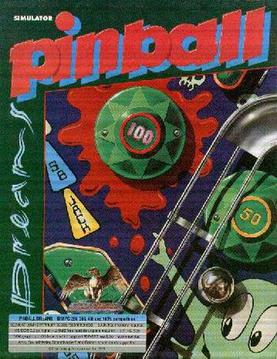
Pinball Dreams is a pinball simulation video game developed by Digital Illusions and originally released for the Amiga in 1992. It spawned several sequels, including Pinball Fantasies and Pinball Illusions. The MS-DOS port was digitally released by Rebellion Developments along with its sequel and Pinball Mania on February 22, 2011 on GOG.com with support for Microsoft Windows. It received an OS X build on April 23, 2013; and a Linux build on August 19, 2014.
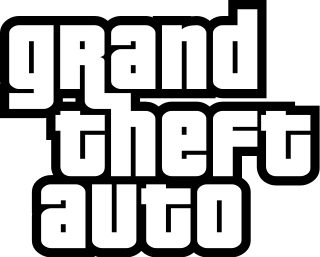
Grand Theft Auto (GTA) is an action-adventure video game series created by David Jones and Mike Dailly. Later titles were developed under the oversight of brothers Dan and Sam Houser, Leslie Benzies and Aaron Garbut. It is primarily developed by British development house Rockstar North, and published by its American parent company, Rockstar Games. The name of the series is a term for motor vehicle theft in the United States.
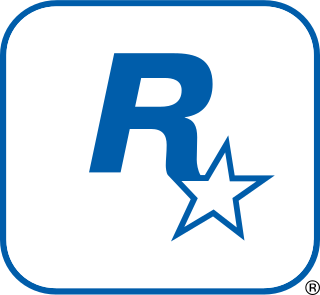
Rockstar Leeds Limited is a British video game developer and a studio of Rockstar Games based in Leeds. Ian J. Bowden, Dave Box, Gordon Hall, and Jason McGann founded the company as Möbius Entertainment in December 1997 after working together at the studio Hookstone. Möbius worked with SCi on two games: Alfred's Adventure, a remake of the Twilight-developed Alfred Chicken, and the cancelled Titanium Angels. From 2001 on, the studio created Game Boy Advance games for several publishers, including multiple for The 3DO Company and Max Payne for Rockstar Games.

Rockstar Games Toronto ULC is a Canadian video game developer and a studio of Rockstar Games based in Oakville, Ontario. The company was established as Imagexcel in the early 1980s and developed more than fifteen games under that name, including Quarantine, which was published by GameTek in 1994. The publisher bought the studio's assets through its Alternative Reality Technologies subsidiary in March 1995 and then sold Alternative Reality Technologies to Take-Two Interactive in July 1997. The studio became part of Take-Two's Rockstar Games label as Rockstar Canada in 1999 and was renamed Rockstar Toronto in 2002 when Take-Two acquired Rockstar Vancouver. Under Rockstar Games, the studio developed the 2005 game The Warriors, based on the 1979 film of the same name, as well as several ports, including the Windows versions of Grand Theft Auto IV, Grand Theft Auto: Episodes from Liberty City, Max Payne 3, and Grand Theft Auto V. In July 2012, Rockstar Vancouver was merged into Rockstar Toronto, which then moved into larger offices.

Rockstar San Diego, Inc. is an American video game developer and a studio of Rockstar Games based in Carlsbad, California. The studio is best known for developing the Midnight Club and Red Dead series.
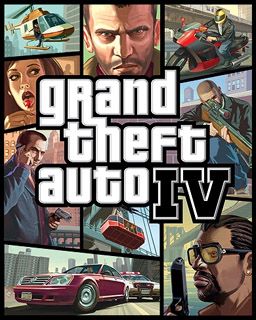
Grand Theft Auto IV is a 2008 action-adventure game developed by Rockstar North and published by Rockstar Games. It is the sixth main entry in the Grand Theft Auto series, following 2004's Grand Theft Auto: San Andreas, and the eleventh instalment overall. Set in the fictional Liberty City, based on New York City, the single-player story follows Eastern European war veteran Niko Bellic and his attempts to escape his past while under pressure from high-profile criminals. The open world design lets players freely roam Liberty City, consisting of three main islands, and the neighbouring state of Alderney, which is based on New Jersey.

Sam Houser is an English video game producer. He is a co-founder and the current president of Rockstar Games, and is one of the creative driving forces behind the Grand Theft Auto franchise, having been its producer since the third game. His brother Dan was Rockstar's vice president of creativity until 2020.
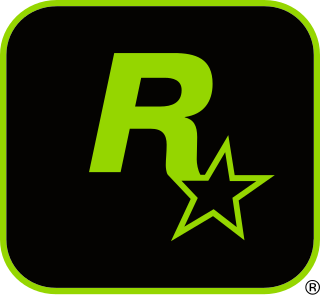
Rockstar New England, Inc. is an American video game developer and a studio of Rockstar Games based in Andover, Massachusetts. Ian Lane Davis founded the company as Mad Doc Software in November 1999 after working as technical director for Activision. The studio worked with Activision on Star Trek: Armada before leading the development of its sequel, Star Trek: Armada II. From 2002 on, Mad Doc was the principal developer of the Empire Earth series, developing two games and two expansions. While the successful Empire Earth II landed the company publishing contracts with Rockstar Games and Bethesda Softworks, Empire Earth III was a critical and commercial failure and led to an end for the series. Mad Doc developed Star Trek: Legacy for Bethesda Softworks and Bully: Scholarship Edition for Rockstar Games. After the latter was released in March 2008, Rockstar Games's parent company, Take-Two Interactive, bought Mad Doc and made it part of Rockstar Games as Rockstar New England. Under Rockstar Games, the studio worked on a sequel to Bully until its developers were reallocated to projects like Max Payne 3.

Rockstar London Limited is a British video game developer and a studio of Rockstar Games based in London. Mark Washbrook established the company in November 2005 within Rockstar Games' European publishing offices. The studio's first game was Manhunt 2, which it took over from Rockstar Vienna after that studio was shut down in May 2006. Rockstar London later developed Midnight Club: L.A. Remix and co-led the development of Max Payne 3. Washbrook left the company in January 2011.

Rockstar Vancouver Inc. was a Canadian video game developer and a studio of Rockstar Games based in Vancouver. The studio is best known for developing Bully (2006).
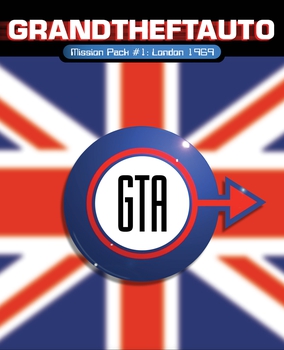
Grand Theft Auto Mission Pack #1: London 1969 is an expansion pack for the 1997 action-adventure game Grand Theft Auto, developed by Rockstar Canada and published by Rockstar Games. It was released for personal computers and the PlayStation in April 1999. The expansion adheres to the same gameplay mechanics of the main game and takes place in a fictionalised version of London during the 1960s. Players assume the role of a criminal who works for several London-based crime syndicates, and complete levels by achieving a set score, within an open world environment that allows them to do whatever they wish alongside jobs to achieve their goal.

Agent is an unreleased stealth action game under development by Rockstar North that was originally announced for the PlayStation 3. The game was planned to take place in a 1970s Cold War setting. Agent was teased in July 2007 and formally announced in June 2009. The trademark for the game's title was renewed in 2013 and 2017, and abandoned by November 2018.
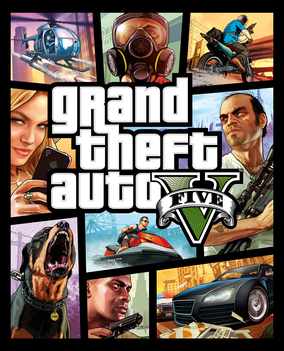
Grand Theft Auto V is a 2013 action-adventure game developed by Rockstar North and published by Rockstar Games. It is the seventh main entry in the Grand Theft Auto series, following 2008's Grand Theft Auto IV, and the fifteenth instalment overall. Set within the fictional state of San Andreas, based on Southern California, the single-player story follows three protagonists—retired bank robber Michael De Santa, street gangster Franklin Clinton, and drug dealer and gunrunner Trevor Philips, and their attempts to commit heists while under pressure from a corrupt government agency and powerful criminals. Players freely roam San Andreas's open world countryside and fictional city of Los Santos, based on Los Angeles.
